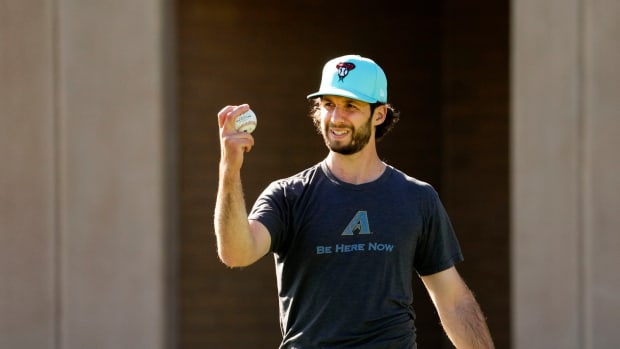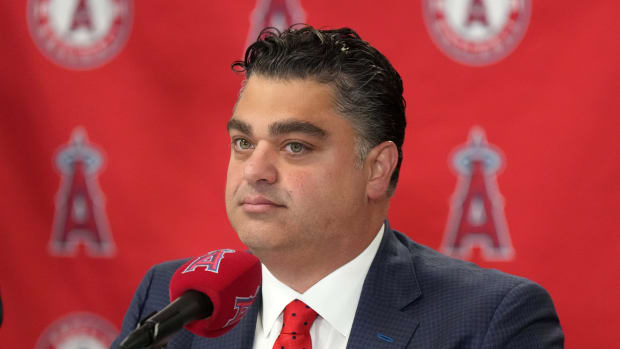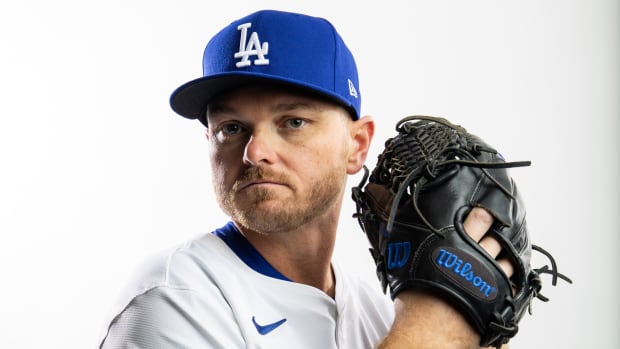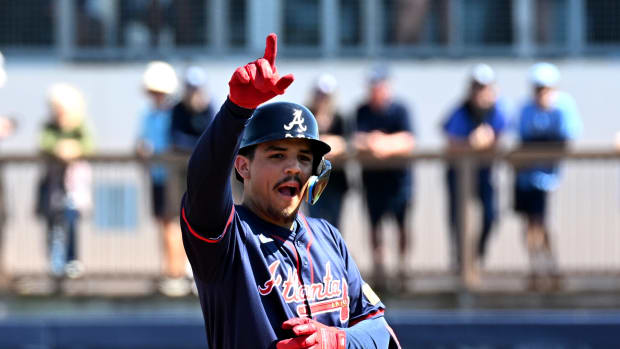Sports, Like The Rest Of The U.S., Still Struggles With Legacy Of Racism
“What you leave behind is not what is engraved in stone monuments, but what is woven into the lives of others.”
– Pericles of Athens, 431 B.C.E.
As with so many things, sports got here first. Right now, the politics of the country are convulsed in the attempt to belatedly come to grips with the fact that we have many statues and memorials to people whose lives, all things considered, might not qualify their names to be scrawled on a railroad overpass. At the moment, the brawl is over memorials to the men who fought for the Confederate States of America, a treasonous offshoot of the United States of America that formed itself around the defense of chattel slavery. Many of these statues were erected, not in the aftermath of the Civil War but, instead, as symbols of the reinstitution of white supremacy in what glibly became known on stage and screen and in our amnesiac history books as The Old South. These particular historical figures have had a nice run, but the time for memorializing them, many people feel, has long been over. Once known in full, history seeks truth and balance the way water seeks a level. And, as I said, sports—as it does in so many things—got there first.
Let me illustrate with the history of my own university. The sports teams at Marquette University have had a number of nicknames down through the decades. They were the Hilltoppers for a while. (Lame!). From 1911 until '54, the football team came to be known as The Golden Avalanche. (Cool! Also, that particular moniker lent itself to a legendary campus dive that didn’t close until 1997.) Finally, in 1954, the school settled on calling its teams The Warriors, and they were represented by a papier-mâché-headed mock Native American named Willie Wampum. Beginning in 1961, this grotesque cavorted on the sidelines at Marquette basketball games for a decade. By the early '70’s, however, with student activism at high tide and the American Indian Movement beginning to strengthen itself all over the Midwest, Fr. James Groppi, a prominent Milwaukee activist, began a campaign to retire Willie Wampum, who was placed into storage—God knows where—in 1971. The school maintained the Warriors name, even briefly employing an actual Native American student at the games, until 1993, when it rather lost its mind for a brief moment.
For some reason, the university decided to drop Warriors entirely, replacing it with the Marquette Golden Eagles. There was a rather universal outrage among students and alumni. (After all, a Warrior could be anything, from a Viking chieftain to an Ostrogoth.) Eleven years later, the student body tried one last time to bring back the Warriors. The university’s trustees resisted and, in one of the worst PR blunders in the history of college athletics, changed the name of the teams to the Marquette Gold, which sounded less like an athletic program, and more like a particularly strong brand of marijuana. Outrage and mockery descended in equal measure. They brought back Golden Eagles, and that was the end of it.
The Rock Of The Redbirds: Cardinals Catcher Yadier Molina Is Part Star, Part Sage
My point is that organized sports have been wrestling with this profound question in public for longer than the political world has. Thousands of high school and college programs around the country have dropped their Native American nicknames and mascots over the past 40 years. The fight over why the NFL team in Washington should still bear the name of an obvious ethnic slur has gone on for almost as long and shows no sign of stopping any time soon. The battle flag of the Confederate army, revived in the 1950’s as a symbol of resistance to the Civil Rights Movement, has been another regular flashpoint. Something of a tipping point, however, was reached two years ago when NASCAR, born in the South and created by one of George Corley Wallace’s first political sugar daddies, banned the flag from all of the infields at all of its tracks. Nor is this strictly an American phenomenon; for years, the battle flag was waved by supporters of the Cork sides in the Gaelic Athletic Association in Ireland. (Cork’s nickname, drawn from the county’s prominence in Ireland’s War of Independence, is the Rebels.) But in the wake of the tragedy in Charlottesville, Va., the Cork GAA officials appealed to their fans not to wave the banner of American sedition at Irish football or hurling matches any more.
Only now is the political world truly confronting the question of why this country should honor men who were hell-bent on destroying it so that they could continue to own other human beings. That race has been the fuel for these controversies is so plain that it hardly needs to be mentioned. There are also questions about Columbus, who helped kick off the genocidal campaigns conducted by European colonizers against Native populations. These are healthy arguments to have. We understand ourselves better as a country and as a people, when we have them right out there in the open, loudly and with great passion, and there’s a big one going on not very far from this keyboard. As I wrote somewhere else, this isn’t sanitizing history. It’s fumigating it.
Once they realized that the city of Boston was not going to play the sap for them and build them a new ballpark, the folks who bought the Boston Red Sox in 2001 set about monetizing just about everything about their old one except the rain that fell upon it. In this, as on the field, they were wildly successful. People pay top dollar for the Monster Seats atop the leftfield wall despite the fact that they’re some of the worst seats in Fenway Park, which does not lack for bad seats. The advertisements that are hung almost everywhere look less like crass commercialism and more like vintage photos of the place from a time when the wall was plastered with billboards for Gem razor blades and Lifebuoy soap. And then there’s Yawkey Way.
Since 1977, the two blocks of the street that runs behind the leftfield foul line at Fenway has been named for Thomas A. Yawkey, who owned the team for 43 years before his death in 1976. Yawkey probably is the reason the Red Sox are still in town, although he had the same trouble getting a new ballpark as the current owners did. He also was a terrible racist. He was largely the reason that the Red Sox were the last team in the major leagues to integrate their roster. The club scouted Willie Mays and didn’t sign him, a decision Mays believes to have been racially motivated. It hired, and then rehired, Mike “Pinky” Higgins, who reportedly vowed that black players never would play for any team he managed. And then there is the Jackie Robinson story.
In 1945, under pressure from Boston City Councilor Isadore Muchnick, the Red Sox held a tryout at Fenway for Robinson and two other Negro League stars. By all accounts, Robinson’s performance was stunning. Then, suddenly, from the direction of the team offices, according to the late Boston sportswriter Clif Keane, someone yelled, “Get those n------ off the field!”
It never has been clear if it was Yawkey or someone else—there’s a strong faction that believes it was then-general manager Eddie Collins who shouted down from the executive perch—but the incident hung around the franchise’s neck for decades. It was the defining racial moment of the Yawkey years and it was revived every time the team made another racial misstep, such as the episode in 1985 when Michael Madden of The Boston Globe revealed that the team had patronized a segregated Elks Club in its spring training town of Winter Haven, Fla. (Madden got death threats behind that story, as did Tommy Harper, the former Red Sox player who blew the whistle on the situation.) Howard Bryant, a Boston native and currently a writer for ESPN, wrote the definitive history of the Red Sox and race in his 2002 book, Shut Out, placing the team’s historic racial insensitivity in the context of Boston’s generally troubled racial past. For example, Bryant details how African-American Bostonians were afraid to attend Red Sox games at Fenway for fear of being the targets of racial invective and actual violence.
Just How High Can Giancarlo Stanton Climb in the Single-Season HR Record Books?
So, it comes as no surprise that, for several years now, there has been a concerted effort to distance the team from the legacy of the Yawkey years. Adrian Walker, a columnist at the Globe, has been instrumental in pushing the idea that Yawkey Way, which has been repurposed as a fan-friendly festival for game nights, should be renamed. This issue has sharpened in the weeks since the controversy exploded in the wake of the events in Virginia and it came to a head on Aug. 18, when John Henry, the principal owner of the team, mused to Michael Silverman of the Boston Herald that he was “haunted” by Yawkey’s racial legacy and that he would be open to taking the late owner’s name off the street. Boston Mayor Marty Walsh was quick to jump on the bandwagon as well.
(However, this being Boston, where there are always wheels within wheels, and where agendas have agendas, the story was a bit awkward since Henry also owns The Boston Globe, but he leaked his plans to his own newspaper’s longtime rival. This struck most people as more than passing strange and did not endear him to the employees of his newspaper.)
The change would be all for the good. (My choice would be to rename it The Pumpsie Green, after the first African-American player to appear on a Red Sox roster, in 1959.) Tom Yawkey saved baseball in Boston, and for that, he deserves the plaque that hangs on the Fenway bricks. But he does not deserve a public street, the common property of all Boston citizens, to be named after him, any more than Jefferson Davis deserves to have a statue in the Capitol of the nation he sought to dismember. Sports got there first on this question and the industry of sports has not fully answered it yet to anyone’s satisfaction. (Washington Redskins? In 2017?) We cannot be true to our country’s history and slaves to our country’s poisonous myths. That has gone on far too long and, as Pericles reminded Athens, time is the wisest counselor of all.


































